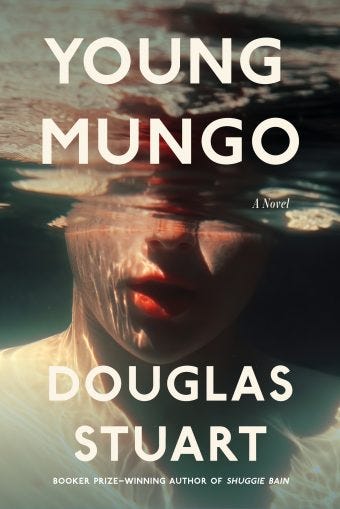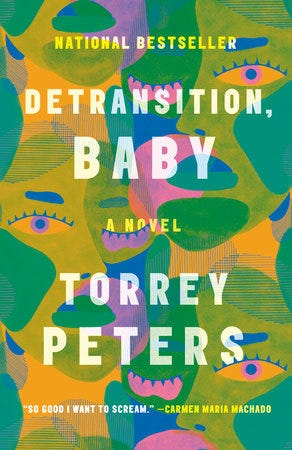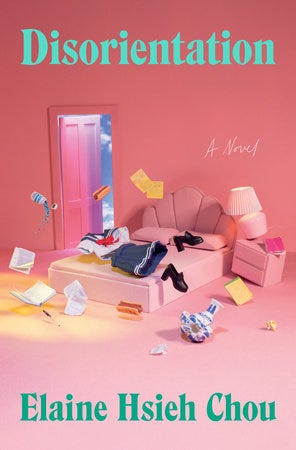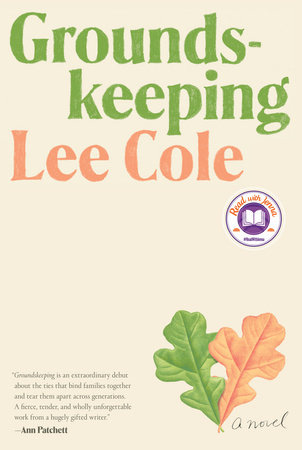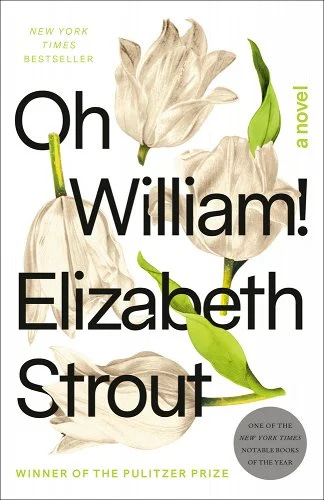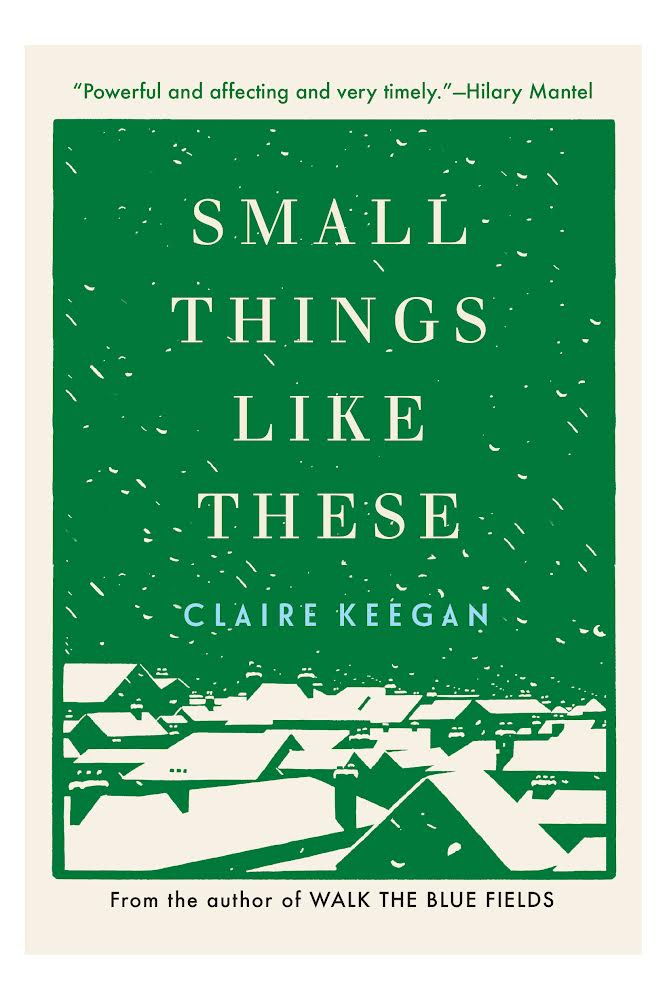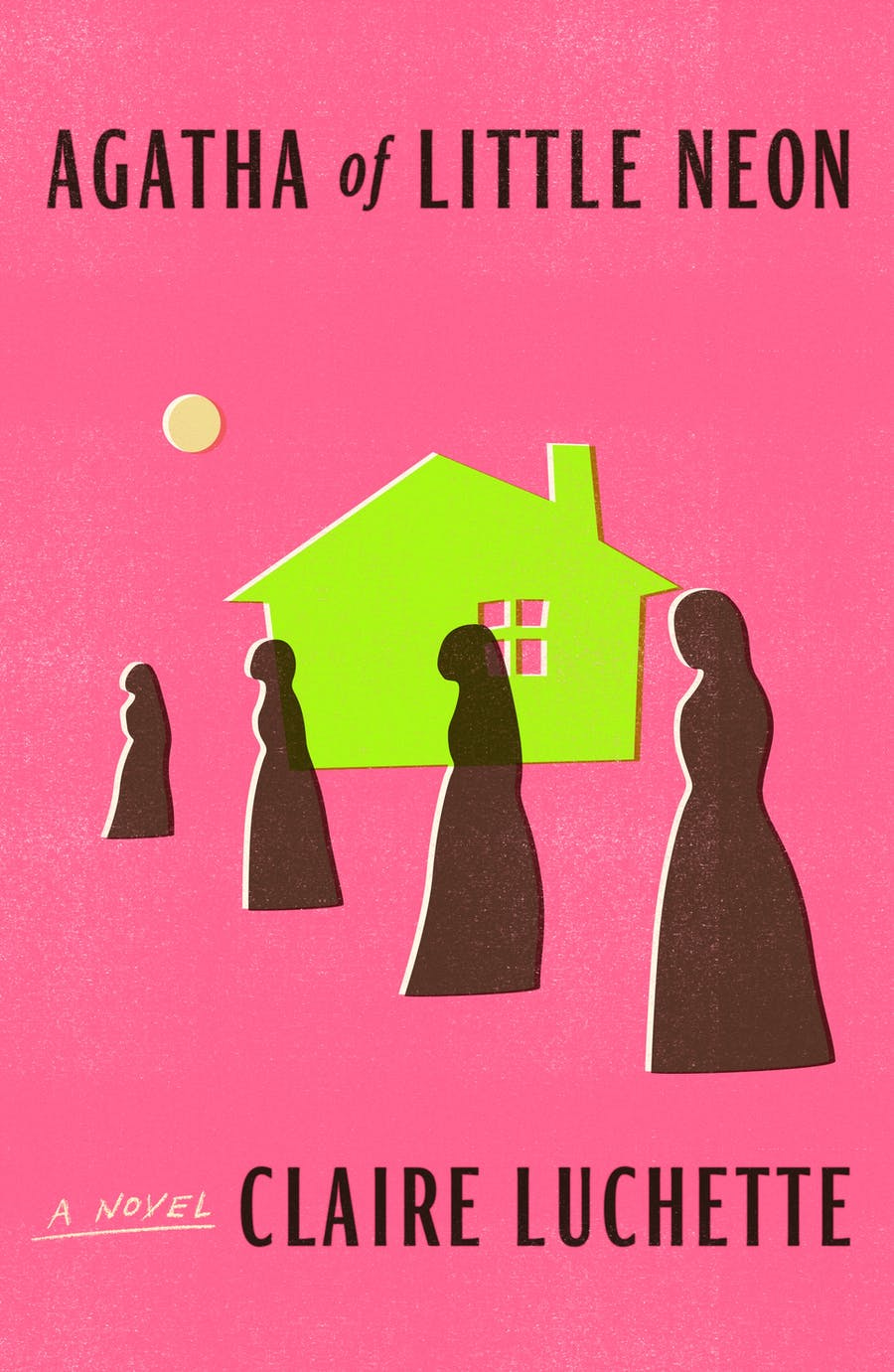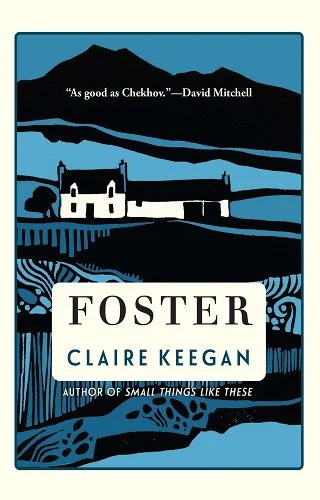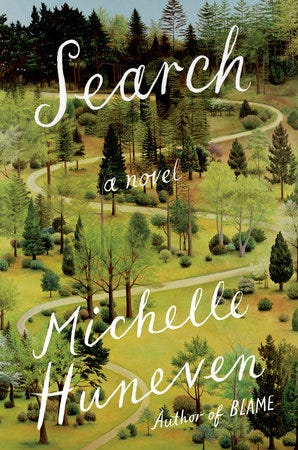It’s the most wonderful time of the year. There are lights on trees, menorahs are lit, my finals are finally done, and 2022 “best of” lists are being published. Not to be left out, I’m excited to release the first of three year in review posts. Today, I’m sharing my (almost) favorite fiction of 2022. Although these were the runner-ups to my absolute favorite reads of the year, which I will announce soon, they were all stellar books and I think they deserve some added attention. The books are ranked but the distinction between them is fairly arbitrary. If you decide to pick one up, let me know! I’m always excited to hear about what books worked for you.
As a reminder, all of the books written about below are available on my 2022 In Review Bookshop Page, or you can click on the title of the book itself to be routed to the shop. All of the books I’ve ever recommended, sorted by post, are also available on the general shop page.
Looking for a last-minute gift? Don’t know what kind of books the person will like? Bookshop.org allows you to buy gift cards for the readers in your life. If you buy through this link, I receive a small affiliate commission.
However, if you want to give me a true holiday present, consider spreading the word about The Book House Blog and share this newsletter with anyone you know who might enjoy!
10. You Have a Friend in 10A - Maggie Shipstead
You Have a Friend in 10A is a short story collection by Booker Prize short-list author Maggie Shipstead (Great Circle, Astonish Me, Seating Arrangements). Each story is as fabulous as the last, but what for me was truly impressive was the range in subject matter that these stories covered. One story is about a couple’s honeymoon gone wrong in Romania, another about a love triangle at a dude ranch in Montana, while another is about an actress breaking from a cult. Her characters are varied and diverse, each fully formed and discovered. Read this collection to sample an author working at her very best.
9. Young Mungo – Douglas Stuart
Douglas Stuart's first novel, Shuggie Bain, won the Booker Prize last year for its stunning portrayal of a young boy growing up in working-class Scotland. Young Mungo, which was released in early April, is a type of cousin to Shuggie Bain, following a young boy in the Protestant tenements of Glasgow in a post-Thatcher era of unemployment and strife. Mungo is fifteen-years-old with an innocence that sharply contrasts with his gang-leader brother, Hamish, and his alcoholic mother, Maureen. Mostly raised by his older sister Jodie, Mungo spends his days at school with the assumption that his future will begin at age sixteen when he can drop out and become a laborer. He is not interested in girls, and as a result, his family sees and treats him as younger than he really is. One day, while wandering around his neighborhood, Mungo comes across a pigeon dovecote maintained by James, a Catholic boy a year older than him who lives down the street. Mungo and James become friends and then quickly develop a romantic relationship, which they must keep secret from everyone around them. This is a book that will break your heart. It is filled with striking details about a common life of poverty with limited hope for the future. It is also a breathtaking story of a young boy attempting to discover who he is within a society that does not allow many options.
8. Detransition, Baby - Torrey Peters
What should motherhood look like? What does it mean to be a mother? Who is capable of being a mother? These are the questions central to Torrey Peters' captivating debut, Detransition, Baby. Ames is shocked to learn that his girlfriend Katrina is pregnant with his child, believing that the extensive hormone therapy he had undergone in order to live as a woman had destroyed any chances at fertility. Katrina is shocked to learn that Ames previously lived as a woman, and while he currently presents as male after detransitioning, Ames still identifies as a woman. As the couple struggles with their decision about whether or not to keep the baby, Ames has the idea to invite his ex-girlfriend Reese into the equation to serve as a co-mother. Reese is desperate to be a mother, but adoption has not panned out and she can not become pregnant as a transgender woman. The offer to share in the parenting responsibilities with Ames and Katrina, however, proves enticing if not exceedingly complicated and the book progresses through the group’s decisions about how to parent while simultaneously exploring Ames (previously Amy) and Reese's pasts. Peters' writing is immensely compelling, and while the book covers large and weighty subjects, it is also very readable, in no small part because of how easily Peters' drew me into the lives of the characters. If the sign of a good book is that it sticks with you after you finish reading it, this definitely fits the bill, especially given that I'm still thinking about the question central to this novel: what makes a mother and who, if anyone, should get to decide?
7. Disorientation - Elaine Hseih Chou
Ingrid Yang is a PhD candidate at Barnes University studying the poetic techniques of the late-Chinese American poet Xiou-Wen Chou. Although she’s in her final year, her ambivalence towards the subject-matter - which was thrust upon her by the eager (white) department head of the East Asian Studies department - prevents her from making any real headway on her dissertation. One day, while sitting in the archive, Ingrid comes across a note left on one of the poems she had been studying, sending Ingrid on a wild goose chase to uncover its meaning, which ultimately reveals shocking secrets and truths about Chou and Barnes.
It’s hard to summarize the plot of the book without giving away the many twists and turns that give this biting satire its punch. Hseih Chou has written a remarkable debut that humorously and deftly tackles issues of discrimination, political correctness on campus, and institutionalized elitism. This is satire at its very best - it makes you laugh and makes you think.
6. Groundskeeping - Lee Cole
Owen Callahan is an aspiring writer who moves back to Kentucky in 2016 to live with his conservative grandfather and uncle. During the day he works as a groundskeeper at a prestigious college in Louisville, which allows him to take one free writing class. Owen has spent most of his life adrift. He grew up in western Kentucky with evangelical conservative parents from whom he felt removed. Looking to get a fresh start, Owen moved to Colorado to work as a tree-trimmer, but quickly fell into a pattern of drug abuse that ended in him living in his car. In many ways, moving back to Kentucky, a place that he feels connected to and yet wants to desperately leave, feels like defeat. Soon after enrolling in his class, Owen meets and becomes involved with Alma, the winner of a prestigious writing in residence fellowship on campus. Alma is the archetype of a liberal millennial and the exact inverse of Owen's family. Alma is the daughter of Bosnian Muslim refugees, grew up upper-middle class in the suburbs of Washington, D.C., and attended Princeton. Her fellowship is only for published writers and her feeling of academic and intellectual superiority over Owen is apparent throughout their relationship despite their clear feelings for one another.
Lee Cole is an incredible writer and this is a fantastic debut. I was so impressed with Cole's ability to write about the political fragility of America through the experiences of one couple. In the scenes in which Alma meets Owen's parents the tension and awkwardness is palpable, and the stark divide between two groups of people so stubbornly encamped in their political beliefs was on full display. Cole's descriptions of Kentucky and the contrasts between liberal Louisville full of chic restaurants serving upscale southern food, Owen's grandfather's dilapidated house in the outskirts of the city filled with used McDonald’s wrappers, and the trailer parks that dot the road on the way to Owen's parents' homes highlighted both the reinvention of the south as well as its decline. This is a powerful novel with so much to think through and unpack.
5. Oh William! - Elizabeth Strout
Oh William! is narrated by Lucy Barton, who is featured in Anything is Possible and the protagonist of My Name is Lucy Barton, a novel that I loved. In Oh William! Lucy is back and narrating her life many years after the events that transpired in My Name is Lucy Barton. While you don’t necessarily need to read My Name is Lucy Barton to read Oh William!, there are subtle references that call back to the first novel and add depth to this current one (plus the book is just so good, it’s worth a read). This novel, narrated by Lucy, focuses on her first husband William, who is in crisis. His third wife has recently left him with their young daughter and, at 71-years-old, he is experiencing a down-swing in his career. On top of that, a DNA test has shockingly exposed that he might have a half-sister in Maine, shattering his pre-conceived notions of his late-mother, Catherine. At his side from a distance and then slowly easing herself closer is Lucy, who is dealing with her own grief over the loss of her second husband. Along the way, Lucy reflects on her marriage with William, her relationship with their daughters, and the evolution of the two after their divorce. Oh William! is a book that explores how well two people can really know each other, even if they think there is nothing more to learn. This was my favorite of the three Lucy Barton books by Elizabeth Strout, who once again writes with such elegance and beauty that I was easily able to read the book in one day.
4. Small Things Like These - Claire Keegan
In a small village in Ireland in December of 1985, Bill Furlong goes about the daily routines of his life as a coal merchant. During one of his deliveries to the village laundry run by Catholic nuns just days before Christmas, Furlong discovers a girl locked in a shed. When he brings her to the front door he is confronted with the thinly kept secret of his town and many towns like his – that these “laundries” are actually homes for women who have given birth out of wedlock or are generally impoverished. Imprisoned in these facilities while their babies are taken from them, these girls are forced to work without pay while staying hidden from proper society. Furlong, himself the father to five girls and the product of a mother who gave birth to him unwed at age sixteen, struggles with what he has witnessed. His wife, however, recognizes the power of the Catholic Church as an institution and does not wish to jeopardize her daughters’ education, which is also run by the nuns. Just as quickly as this novella begins. Indeed, it is remarkable that given the length of the story the characters were as developed as characters in a novel twice its length.
3. Agatha of Little Neon - Claire Luchette
Agatha and her three sisters have spent the last 9 years running a parish daycare in Buffalo. In their spare time they assist with mass, run bible study sessions, and provide good deeds around the community. When word comes, however, that the Buffalo diocese is bankrupt, Agatha and her fellow sisters are forced to relocate to Woonsocket, a small Rhode Island town, to run a halfway house called Little Neon, named after the color of the cheap paint on the exterior. Upon arrival, Agatha, deemed the smartest of the four, is asked to teach sophomore geometry at the local all-girls school. For nine years, Agatha has done everything with her sisters and has reveled in the anonymity provided by the church. The opportunity to become a teacher slowly expands her world, shining light on subtle problems that were always present but that she chose to ignore, including the seeming futility of her work, close-mindedness towards a student caught kissing another girl, and the constant murmuring about an issue of sexual abuse and the large monetary payoffs being paid by the Church.
I thought this book was fantastically written, full of observations that are as quiet as they are powerful. I appreciated that Agatha's reckoning with the Catholic Church and her role as a sister were not instigated by one calamitous event nor were her complaints forceful and immediately clear. Rather, it was the accumulation of a decade of subtle slights that precipitated a slow awakening for Agatha to her surroundings. This is a beautiful book on faith and religion written with detailed precision.
2. Foster - Claire Keegan
In 1980s Ireland, a father drops off his child at a couple’s farm where she will stay over the summer. The father’s wife is pregnant yet again, and sending his eldest away will temporarily relieve their burdens. The unnamed narrator of Claire Keegan’s novella, Foster, is young enough to be treated as a child but old enough to be perceptive about the world around her. She is nervous when she arrives at the childless Kinsella’s home, but is soon welcomed by the husband and wife who treat her as if she is their own.
While the book is extremely short - only 95 pages - I loved every second of it. Like her previous novella, Small Things Like These, Keegan is able to craft a fully realized world using limited words. Although I kept waiting for something dramatic to happen, this is not that type of story. Instead, I finished the book with a dual feeling of warmth and sadness. There’s something extremely satisfying about being able to finish a book in one or two sittings, and this is made even more true when the writing is as clear and purposeful as Keegan’s.
1. Search - Michelle Huneven
Search, a novel written in the form of a memoir, is the story of one California Universalist-Unitarian church's search for their next head minister. Dana, the author of the memoir, is a former seminary student turned LA Times food critic and best-selling memoirist, who decides to apply for and join the search committee both as a way to reconnect with her community as well as gain fodder for a new memoir. In addition to Dana, the search committee is composed of seven other people who act as a representative sample of the congregation, from the 85-year-old former church secretary to the young mother in her twenties with strong opinions about how the congregation should look in the future. The book follows the committee and their organized deliberations over the course of the nine month process to find the next minister, giving insight into a highly choreographed and highly contentious search. This is a book that contrasts entertaining and tension-filled characters with quiet moments of pensive reflection on the roles of community, spirituality, and leadership in a highly progressive enclave. This book is not action-packed but it is not devoid of movement either. I was drawn to Huneven's prose from the very first page and loved its unique structure and unconventional subject matter that made it difficult for me to put down.
Looking for more? You can read all of my past reviews on the Book House Blog. Subscribe now to receive emails with my remaining favorite reads of 2022.




